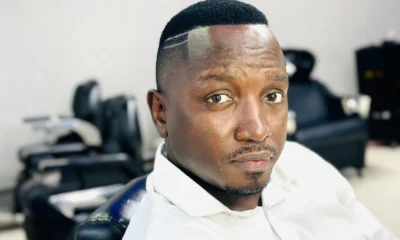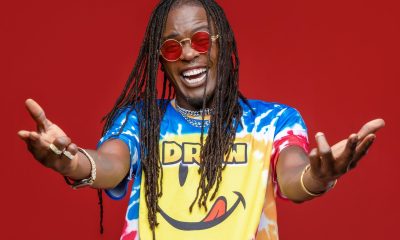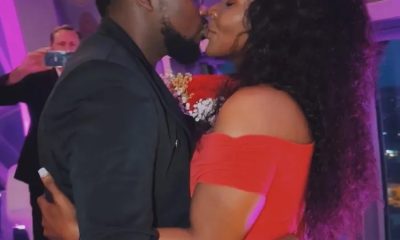Gossip
Maro celebrates a decade in the music industry

Singer Maro.
Ronald Magada aka Maro is a Ugandan R&B artist with arguably the sweetest voice. A testament to Maro’s impeccable musical talent came to light in his first collaboration with Mya – the former Blu*3 girl when they outed Baibe in 2012. His second collaboration with David Lutalo titled Mubbi Bubbi in 2014 further cemented his place as one of the most talented musicians of our time.
He was raised by soldiers and for this reason, Maro grew up in Nsambya Barracks – Kampala. For this reason, he attended Nsambya Police Nursery School, Seeta primary, Bupadengo primary school where he sat his primary seven exams. Maro sat his senior six exams at Buloba Secondary School. It is from here that he joined Makerere University where he graduated with a degree in development studies. He met with The Sunrise’s Fahad Kasibante on his musical journey. Below are exerpts.
Why do you call yourself RnB Kyabazinga?
The name means RnB King so to give it an origin, I had to use Kyabazinga, a title given to the King where I come from.
What genre do you think would give you a hard time?
A.I think kadongo kamu though I have sung and still sing any style. I chose not to leave out the RnB in me.
Why did you join music of all careers?
A.I joined music with stories to tell. This is why most of my songs are stories. I am a story writer and a story teller. Music gave me a voice. I was always that humble and not so talkative boy so music gave me a voice. My family gets surprised with my interviews because I was a quiet boy, observant and not stubborn as such.
Another important point is that my mum used to sing in church and her career ended in church so whenever I am singing, I feel like I am living a dream she could have lived.
When did you realize you could sing?
A.I think I was ten. By then, I used to listen to my aunt Mariam sing karaoke at Sabrina’s and I used to help her write the songs down. Listening to the songs made me admire artistes like Kanda Bongo Man, Kofi Olomide, Joe Tabula among others. The first time I wrote a song was in primary at Bupadengo. I used to collect UGX100 to sing for my school mates. My inspiration is always from my heart’s imagination.
What is that challenge you see eating up the entertainment industry?
Identifying a fan base. There is a tendency for artists to want to maintain a fan base – of people they think follow them. For instance, you may be targeting an audience of 20yrs now and forget their taste will change next year. The artist should always keep in mind and find a way of balancing their new fans and the old audience. As for me, I produce the content depending on how I feel in my heart. If I am in a mood for dancehall, it is what I will release.
I see you spent the whole of last year on international tours, who connects you?
Music is a universal language especially when it is good music. It gives one an opportunity to the artiste to explain him/herself and their message. The only challenge is pleasing the promoter because it is him who does the payment. People in the west are organized. They give you enough time to organise yourself and this helps you grow.
You once complained about promoters in the diaspora. What exactly happened?
Some of the Ugandan promoters living abroad are disorganized and not open because they don’t want to annoy the artiste so they end up promising what they can’t deliver.
Tell us about your biggest achievements from the international gigs?
The tours have taught me that anyone willing to know what I have learnt should come at Mestil hotel in Nsambya where I will be celebrating 10years in the industry. I chose that place because it has my childhood memories. We used to play at the railway so Mestil sits where all my dreams began. It is where I received Miki Wine’s call for my first Collabo.
Any lessons you have learnt from Europe that you believe Ugandans should emulate.
There is room to grow in Europe and each artiste has their own crowd. One can sell 2020 concert tickets a year back but still people buy them. There are genuine supporters. Another thing is we compete without knowing what exactly we are competing for. We don’t do enough research and in the end, we focus on the icing and leave out the cake.
A.What is your last remark?
Music is not different from our day to day life. Challenges are lessons that teach us not to repeat the same things over again. My only wish musically is if Uganda was close to Nigeria or Europe. We believe in copying so I believe if they we had been close, we would have learnt so much and weakened them the same way we do to our neighbours. The fact that they are distant makes us more of their copycats because we live to admire what they do.
Comments


















